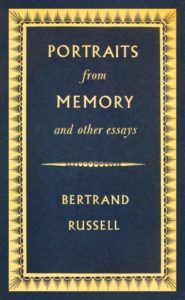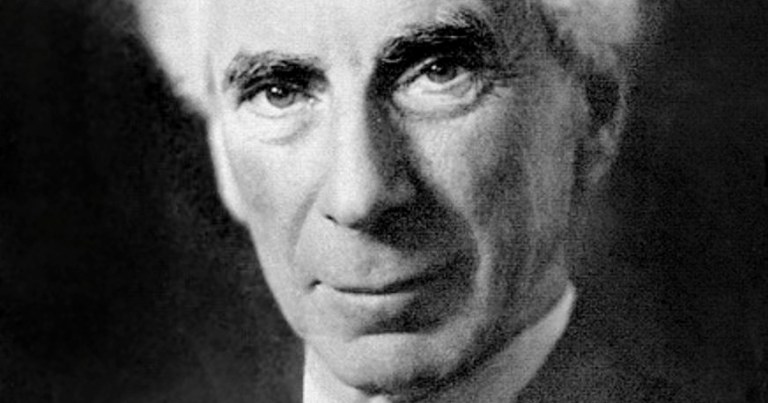How to Grow Old: Bertrand Russell on What Makes a Fulfilling Life
INSPIRATIONAL, 16 Jul 2018
Maria Popova | Brain Pickings – TRANSCEND Media Service
“Make your interests gradually wider and more impersonal, until bit by bit the walls of the ego recede, and your life becomes increasingly merged in the universal life.”
 “If you can fall in love again and again,” Henry Miller wrote as he contemplated the measure of a life well lived on the precipice of turning eighty, “if you can forgive as well as forget, if you can keep from growing sour, surly, bitter and cynical… you’ve got it half licked.”
“If you can fall in love again and again,” Henry Miller wrote as he contemplated the measure of a life well lived on the precipice of turning eighty, “if you can forgive as well as forget, if you can keep from growing sour, surly, bitter and cynical… you’ve got it half licked.”
Seven years earlier, the great British philosopher, mathematician, historian, and Nobel laureate Bertrand Russell (May 18, 1872–February 2, 1970) considered the same abiding question at the same life-stage in a wonderful short essay titled “How to Grow Old,” penned in his eighty-first year and later published in Portraits from Memory and Other Essays (public library).
Russell places at the heart of a fulfilling life the dissolution of the personal ego into something larger. Drawing on the longstanding allure of rivers as existential metaphors, he writes:
Make your interests gradually wider and more impersonal, until bit by bit the walls of the ego recede, and your life becomes increasingly merged in the universal life. An individual human existence should be like a river — small at first, narrowly contained within its banks, and rushing passionately past rocks and over waterfalls. Gradually the river grows wider, the banks recede, the waters flow more quietly, and in the end, without any visible break, they become merged in the sea, and painlessly lose their individual being.
In a sentiment which philosopher and comedian Emily Levine would echo in her stirring reflection on facing her own death with equanimity, Russell builds on the legacy of Darwin and Freud, who jointly established death as an organizing principle of modern life, and concludes:
The man who, in old age, can see his life in this way, will not suffer from the fear of death, since the things he cares for will continue. And if, with the decay of vitality, weariness increases, the thought of rest will not be unwelcome. I should wish to die while still at work, knowing that others will carry on what I can no longer do and content in the thought that what was possible has been done.
Portraits from Memory and Other Essays is an uncommonly potent packet of wisdom in its totality. Complement this particular fragment with Nobel laureate André Gide on how happiness increases with age, Ursula K. Le Guin on aging and what beauty really means, and Grace Paley on the art of growing older — the loveliest thing I’ve ever read on the subject — then revisit Russell on critical thinking, power-knowledge vs. love-knowledge, what “the good life” really means, why “fruitful monotony” is essential for happiness, and his remarkable response to a fascist’s provocation.
_______________________________________
 Brain Pickings is the brain child of Maria Popova, an interestingness hunter-gatherer and curious mind at large obsessed with combinatorial creativity who also writes for Wired UK and The Atlantic, among others, and is an MIT Futures of Entertainment Fellow. She has gotten occasional help from a handful of guest contributors.
Brain Pickings is the brain child of Maria Popova, an interestingness hunter-gatherer and curious mind at large obsessed with combinatorial creativity who also writes for Wired UK and The Atlantic, among others, and is an MIT Futures of Entertainment Fellow. She has gotten occasional help from a handful of guest contributors.
Go to Original – brainpickings.org
DISCLAIMER: The statements, views and opinions expressed in pieces republished here are solely those of the authors and do not necessarily represent those of TMS. In accordance with title 17 U.S.C. section 107, this material is distributed without profit to those who have expressed a prior interest in receiving the included information for research and educational purposes. TMS has no affiliation whatsoever with the originator of this article nor is TMS endorsed or sponsored by the originator. “GO TO ORIGINAL” links are provided as a convenience to our readers and allow for verification of authenticity. However, as originating pages are often updated by their originating host sites, the versions posted may not match the versions our readers view when clicking the “GO TO ORIGINAL” links. This site contains copyrighted material the use of which has not always been specifically authorized by the copyright owner. We are making such material available in our efforts to advance understanding of environmental, political, human rights, economic, democracy, scientific, and social justice issues, etc. We believe this constitutes a ‘fair use’ of any such copyrighted material as provided for in section 107 of the US Copyright Law. In accordance with Title 17 U.S.C. Section 107, the material on this site is distributed without profit to those who have expressed a prior interest in receiving the included information for research and educational purposes. For more information go to: http://www.law.cornell.edu/uscode/17/107.shtml. If you wish to use copyrighted material from this site for purposes of your own that go beyond ‘fair use’, you must obtain permission from the copyright owner.
